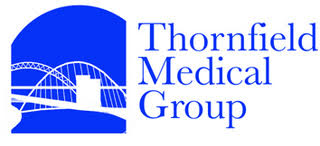What is the menopause?
Menopause is the time in a woman’s life when her periods stop as a result of the reduction and
loss of ‘ovarian reproductive function’. Ovaries produce the hormones oestrogen, progesterone
and testosterone. When a woman approaches the menopause, less oestrogen is produced
causing her body to behave differently. This process is usually a gradual one that progresses
over several years. Oestrogen also plays an important role in maintaining bone and heart
health as well as brain function during the reproductive years.
The menopause usually occurs between 45 and 55 years of age. The average age in the UK is 51. It
is defined as when a woman has had no periods for one year or more. Before then a woman will
experience ‘early peri-menopause’ and ‘late peri-menopause’.
Early peri-menopause
Women initially experience a change in menstrual cycle pattern when periods
become infrequent and the cycles become slightly longer, e.g. 6-7 weeks apart. This phase is called the
‘early peri-menopause’. The average age it occurs is 47 and it is when women may start experiencing
menopausal symptoms.
Late peri-menopause
Subsequently, many women experience worsening of their menopausal
symptoms. Menstrual cycles become less frequent, with periods a few months apart. This is called the
‘late peri-menopause’ and the average age it occurs is 49.
Symptoms
The most common symptoms are hot flushes and night sweats (vasomotor symptoms),
experienced by 70-80% of women. Other symptoms include disturbed sleep and insomnia,
low energy levels, low mood, anxiety, low libido and low sexual drive, impaired memory and
concentration, a sensation of ‘brain fog’, joint aches, headaches, palpitations and vaginal dryness
and urinary symptoms.
HRT
All types of HRT contain an oestrogen hormone. If you take HRT it replaces the oestrogen that your ovaries no longer make after the menopause. Some types contain a progestogen hormone as well.
Different women prefer different methods of taking HRT. The options include: patches, tablets and topical gel or spray (applied to the skin) . Patches and gel are increasingly popular forms of HRT, and many women find them convenient to use. Unlike tablets, patches and gel do not increase your risk of blood clots. Your doctor or practice nurse can give you information about the pros and cons of the different types of HRT.
